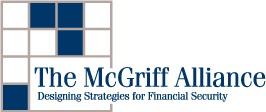 It can happen in an instant. One minute you're living a nice life, the next you've lost your job, suffered a serious injury, or discovered that the water heater isn't working.
It can happen in an instant. One minute you're living a nice life, the next you've lost your job, suffered a serious injury, or discovered that the water heater isn't working.
Are you financially prepared?
If you're like a lot of Americans, you're probably not saving as much money as you need to be saving. Sure, you may pour as much as you can into your 401(k) or another retirement account. But that money isn't guaranteed, under your control, or readily available should you need it.
But you're probably not thinking about that. You are more focused on your job, your family, and making your mortgage or rent payment. According to TradingEconomics.com, the average American family is saving less than 1 percent of its yearly income.
Contrast that to the 14 percent that families saved in 1975 and it's easy to see why Edward M. Gramlich, a former member of the Federal Reserve Board of Governors, says that saving has been "relegated to the B list of economic measures."
Saving money was once considered a way to reach prosperity—a sort of prosperity economics.
The danger with relegating saving to an afterthought is that it forces families to rely on credit for emergency (and sometimes even non-emergency) expenses. Not only does credit come at a steep price, but it's not always readily available. Think about how many families were caught financially flat-footed after the country's economy crashed in 2008.
Many people lost their jobs; some lost their homes.
Focusing on building a solid savings account is about more than having the ability to buy what you want, when you want. It's about building a solid foundation of prosperity for your everyday life as well as your future.
Take a look at these tangible benefits of building your savings:
Emergencies don't hurt as much
It has been said that only two things in life are guaranteed, so you had better be prepared for the unexpected. You never know when your car is going to break down, your company is going to downsize, or someone in your family is going to become seriously ill.
Each of these emergencies can put an incredible amount of stress on you, your family, and your finances. Sure, you can try to rely on credit cards to get you by and early withdrawals from your 401(k) to cover the major expenses. But both come at huge costs. The interest rates on many credit cards are incredibly high, and you'll wind up paying extra taxes and penalties on your retirement account withdrawals.
If you have significant savings, the emergency won't hurt you as much financially, and you'll be better prepared to deal with the issue at hand without worrying about how you're going to pay for it.
You'll be ready when opportunities knock
Saving money isn't only for emergencies. It's also for opportunities. If you have significant savings, you have liquid assets you can use to invest. Maybe you'll come across exciting opportunities in the stock market. Or maybe it will be real estate. Whatever it is, you won't be able to make the most of it if you don't have significant savings.
Being ready to make the most of opportunities is a crucial component of prosperity economics.
You can buy time
Weathering an economic downturn is a lot more difficult without savings. If your income decreases or your expenses increase, you'll be better positioned to ride out the storm and buy yourself time to adjust if you have focused on saving money.
Being able to buy yourself time without depleting your long-term savings is key toward making the most of prosperity economics.
You'll be investing in yourself
You've probably heard the old adage that you should always pay yourself first. The reason this is such smart advice is that it means you are investing in yourself—in building a better future.
According to an article published in Forbes, there are four key factors that lead to upward mobility: education, dual incomes, continuous income generation and savings. The more you save, the more you have to invest in your education and training, which leads to better earning opportunities.
So go ahead: invest in yourself today to build a brighter future for yourself tomorrow.
Saving is good for you, and it's good for the country too
When Americans save their money rather than relying on credit cards, the economy is actually more stable and less likely to be impacted by fickle interest rates or the availability of credit. This is good for you because it means your long-term investments such as your 401(k) will be more secure.
And it's good for the country because the entire economy is built on something tangible, which means companies are more likely to add jobs, fewer people are unemployed, and there is less instability in the market. The country is a better place if everyone pays attention to prosperity economics.
Go on the offensive
If you are tired of living your financial life by being defensive—living paycheck to paycheck, worrying about your ability to manage the next emergency or what opportunities might pass you by—it's time to start saving.
It will take focus, effort, and an attention to detail, but it's worth it. Not only will you be better positioned to weather the next economic downturn, deal with life's emergencies, and make the most of the opportunities that come knocking, but you'll also be living a more comfortable—and ultimately more prosperous—life.
Here is a look at five easy ways to go on the offensive and jumpstart your saving:
- Track your spending. There was a time not that long ago when everyone carried a checkbook and every check was meticulously recorded so that bank accounts could be balanced—and everyone knew exactly what they were spending. Today, however, automatic bill payment and quick credit card swipes have become the norm. As a result, many people don't know with precision how they are spending their money. Tracking your spending allows you to look for waste and adjust your spending accordingly.
- Prioritize. This is simple. Would you rather spend $6 a day on coffee or put $6 a day into your savings account to build a better future for yourself? If you really look at your spending habits, you might be surprised how much money you could actually sock away if you focus on your priorities. Prioritizing is one of the fundamental principles of prosperity economics.
- Change your habits. You don't have to cut coffee out of the budget, but you might want to start brewing coffee at home. The same can be said for eating out. Don't deprive yourself of life's creature comforts; just change your habits to enjoy them less frequently or from a less expensive source.
- Automate it. You can set up automatic withdrawals that go directly into your savings account, which means the money isn't sitting there in your checking account just waiting to be spent.
- Hide it. Sometimes having easy access to your money is a surefire way to find a way to spend it. Consider opening a savings account in separate bank or credit union where you won't have immediate access to it.
Join the prosperity economics movement
Banks and credit unions are great places to put your money when you first commit to prosperity economics. Your money will be safe, and you'll be able to access it when an emergency or opportunity arises. However, you'll likely only earn about a 1 percent return on your money. As your savings grow, you will probably want to move your money into an account where it will start earning more, such as whole life insurance.
Whole life insurance allows you to practice prosperity economics by:
- Increasing your ability to save long-term, creating even greater financial stability
- Protecting your privacy because the IRS will not be aware that you have stashed away a significant amount of money
- Providing for your family in a responsible manner because whole life insurance doesn't get more expensive when you need it the most
- Earning a return on your money that is typically three times greater than what banks offer
- Building a liquid savings account that can be used or borrowed against at any time, for any reason
Yes, you can start building prosperity and join the prosperity economics movement today. Just follow the directions laid out in this article and connect with a financial adviser who can help you create a plan, start saving, and make the most of whole life insurance.
But most importantly, you'll be building a brighter future for yourself.






Leave a comment